A Short Film About Killing (1988)
Rayting:
8.1/
10 17.7K votes
Language: Polish
Release date: 9 February 1989
The plot couldn't be simpler or its attack on capital punishment (and the act of killing in general) more direct a senseless, violent, almost botched murder is followed by a cold, ...
Similar Movies
5.3
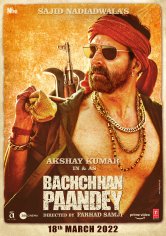
Bachchhan Paandey 2022
5.4

Spiderhead 2022
7.0

Gangubai Kathiawadi 2022
6.1
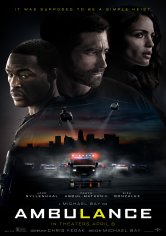
Ambulance 2022
7.0
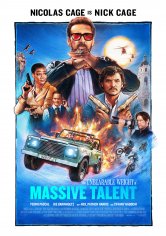
The Unbearable Weight of Massive Talent 2022
8.4
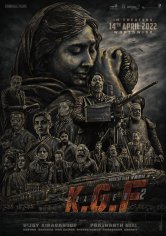
K.G.F: Chapter 2 2022
7.9
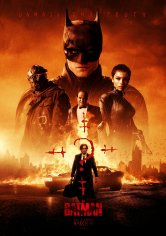
The Batman 2022
5.6
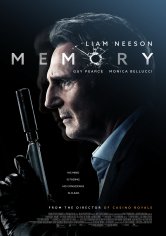
Memory 2022
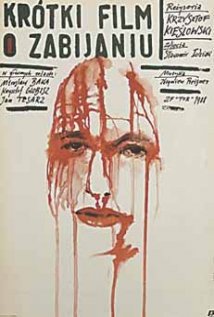

User Reviews
Although this movie concerns itself with one of the paramount taboos, its evocative intensity is kept quite impassive. Perhaps the intention is to allow the viewer the freedom of choice: to either accept consciously, the facts of life, with all its "red in tooth and claw" aspects, {a form of realism}, or to resist the blind, impulsive irrationality of sado- masochistic gratification with all its pathological undertones.
Kieslowski divides his tale into three main parts - the first part introduces the three main characters - the candidate advocate who is being examined by the Board for his Bar entrance - we are introduced to a man of a sensitive nature, thoughtful and unconvinced after four years of practice that punishment is a deterrent {although he concedes that it might be a deterrent ,or at least intimidatory to those for whom crime is not a natural calling}. He offers a reference from Genesis stating that the threat of punishment did not deter Cain from murdering Abel. The next character is a youth who walks aimlessly looking at cinema posters, amusing himself in rebellious and anti-social ways. The third character is a taxi driver who is seen cleaning and shining his car. Kieslowski has given him a rather disagreeable personality.
The second part of the movie has the three main characters slowly and inexorably moving towards each other so that the precise details of their intertwined destinies can be unfolded. The advocate is seen with his wife in the same coffee house as the punkish youth. The youth then randomly selects a taxi to drive him to a desolate country road where in a slowly enacted, drawn out scene, he garottes and bludgeons the taxi driver, who begs for mercy on behalf of his wife and children. The viewer is left in no doubt as to the horror of the act as the youth raises a large stone and smashes the victims head with it.
The movie then experiences a jump cut in editing as the capture and trial of the murderer are omitted and the thread of the story continues with the youth being found guilty. This causes the advocate to go through a soul searching period of whether his defence of the youth was competent. Kieslowski, finally allows the viewer biographical access to the life of the youth/murderer - this is the only part of the movie driven by emotional values as we learn of the tragedies in his life and his need to be reassured that at least in death he would be buried close to his father and sister whom he both obviously loved. This is a brilliant preparatory moment as the viewer is made conscious of this up -to-now abstract figure, who up to this point had elicited no sympathy at all. Now the viewer is jolted into consciousness as the humanity of the murderer transforms him back into a human being.
The third part of the movie - the final curtain, is the carrying out of the death penalty.Unlike Hollywood, where as in "Dead Man Walking", Sean Penn is shown walking to his doom still embracing his pride - Kieslowski depicts the taking of life, first, with the murder of the taxi driver in a long protracted scene, and then with the Judicial murder, a heart wrenching display of fear and struggle leaving the viewer feeling personally assaulted and gut-wrenched {at least that's how I felt}.
Only a master of the practice of art could have pulled this off. When one thinks of what to reference this movie to, other movies don't come to mind. Rather one has to look at literature {as I'm sure Kieslowski did}. Dostoevsky's "Crime and Punishment&
Fmovies: A very simple film that should make even the extreme right wing supporters of the death penalty at least question their beliefs.
Personally, I am a supporter of capital punishment, and until the final 15 minutes I was still unfazed by the film and clear in my mind that if used correctly it should be implemented. I know all the arguments about capital punishment not affecting crime rates but to be honest I don't really care about that. It's all about an eye for an eye and allowing relatives a degree of closure knowing that the perpetrator who killed their love one had suffered a similar fate.
However, and this is where this film is clever, the film doesn't allow you to see any real background to the character before committing his crime. It allows you to see only the act and judge the character on the act alone. If the film ended at the murder you would also believe capital punishment is not such a bad idea after all. Once we go past the very short trial (A long drawn out trial was rightly skipped as we already know the fate of our young man), and we get the one on one interview with the aspiring anti death penalty barrister we start to see just how screwed up this kid is, and how the rage in him is not entirely of his own making. Just as you start to question if you knew your mind doubts start to creep in and, just as quickly, before you can really gather any coherent thoughts he is whisked away to his death, and the act is entirely as abhorrent as you imagine it would be.
The nasty high risers and grainy colourless backgrounds set the scene well, and the shaded lenses, focusing on the main character highlighting his loneliness and possibly his narrow mindedness made it a rather sad film to watch, but it certainly is worth sticking with.
An 9/10 is definitely warranted
A Short Film About Killing (1988)
"Since Cain, no punishment has proved an adequate remedy."
A soon to be lawyer responds to the debate on capital punishment with this quote at his exam. The older lawyers seem pleased and do not need to be told who the source of those words are. And so we are not told. Kieslowski, one of the greatest of all filmmakers, made a habit of this in his films, he never tells us anything we don't need to know, even when we think we need to know. In the Double Life of Veronique he never tells us why there are two women who look exactly alike, both have heart problems, why one feels the loss of the other without ever having met her or knowing of her, or why all this happens despite no relation (perhaps other than spiritual) whatsoever. We want to know the answer, but what good would that do? If we got it we'd likely be left disappointed. Whats left unsaid sometimes speaks the loudest.
In A Short Film About Killing Kieslowski never really goes into details about why a young man brutally murders a Taxi Driver one afternoon. We find out details from his past, but the closest we get to finding out why he did this is why he lives in the city now. In Kieslowski's world, chance dictates the day - although it is not necessarily random. The characters in the film seem to be on a path of fate - the young lawyer, the young man, and the middle aged taxi driver. They are floating down a path, presented with various different paths, which unfortunately for all involved are never treaded on. The taxi driver is the best example of this. He has a mean streak, if not for anything but his own enjoyment. Early on a young couple wait for him to finish washing his taxi. He finishes and simply drives off leaving them behind, seemingly pleased with himself. Later he sees a drunk man coming out of a pub with the help of his friend, instead of taking the fare he immediately drives away before the men can get in the cab. This mean spirited actions lead him on a path to his death. If only he had took the couple the young man wouldn't have ended up in his car; if only he decided to be a good Samaritan and take the drunken fare, he would have never ended up with his killer in the car. But alas he chooses to ignore the escapes and alas he is killed. The film is clear about what its trying to say in its main message: Capital punishment is wrong and unjust. Fate lead to the death of the taxi driver, but it is the state's vengeance for a man it could care less about that leads to the murder of the young man (yes, capital punishment is murder, no matter how you spin it, Sorry Weber).
What is incredible about this film is that whereas other anti-capital punishment films show that the offender has his very clear reasons for committing his crime, tugging at our heart strings with murder in some form of defense, Kieslowski doesn't allow us that luxury. No, instead the taxi driver, a jerk he may be, is killed in cold blood without any legitimate justification. That is a bold step to make in a film against capital punishment. David Gale should have taken lessons. That the film makes this work is perhaps its greatest strength. We see that the young man regrets what he did, he's scared, he's human - not a monster. Kieslowski makes the final scenes genuinely heart breaking without having to tell us why.
Yes, it is the lack of reason which makes A Short Film About Killing work, just as the lack of answers is what makes The Double Life of Veronique work. Fate has it
A Short Film About Killing fmovies. Impressive and thought provoking, this film debates the age-old topic of capital punishment. Here though, there is a difference. The morality of state-killing is critiqued alongside an analysis of individual agency - when a person kills another, apparently from a desire to murder, are there other motives and factors that bring him/her to this position? Are we all, given certain circumstances, capable of killing?
This tantalising and worrying notion has been considered elsewhere, and Camus' 'The Outsider' is a good example. Here, there are many parallels with Kieslowski's film: that a desire to kill - and killing itself - can be driven by a range of factors - some banal, some traumatic, and not all by any means within the control of the protagonist.
The bleakest, most powerful of Kieslowski's Dekalog series opens with half the screen black, and the other half full of a cat hanged by the neck from a street railing. Children scamper off in the background, laughing. The words of the title appear over the black. Bam. We're in. And we're not allowed out of this bleak, miserable world until the end credits. We must crawl through a world where humour is exiled and bitterness and cynicism reign, with our eyes fitted with lenses hand-painted by the director, turning Warsaw into a jaded defeated landscape of dirty sepias and dishwater greys. The story is simple; a young man kills a taxi driver and is, in turn, killed by the state. Just as the title says. There is no humour, no light relief. It's awful, somehow beautiful, constantly disturbing. It's dirty and tawdry. While cinema barrages us daily with glib murders by the bucketful, Kieslowski gives us just two, and shows us killing for what it is: a bare foot emerging from a shoe & sock as a dying man writhes; blood and urine dribbling into a plastic tray under the gallows. A film which haunts.
I am sure this is not the most depressing film ever made, I am sure that somewhere, some time, some one has made a more distressing and emotionally powerful look at humans in all there glory. I'm sure people have endeavoured to make a film that makes a city (in this case Warsaw) look bleaker and darker. And I'm sure that this isn't the most painful spiral downhill voyage any character has ever made on celluloid. I'm also sure that this movie is the darkest movie on every level I have ever seen.
The director uses dark filters at time to make this movie almost black, but all that is does is replicate the feel of the material. Which was essentially an anti capital punishment movie. We follow a young man's trip to the dark side, troubled by an unnamed past this movie is a lot like The Machinist or Requiem for A Dream, we can see this man faltering and we feel helpless. The movie is compelling the same way a car wreck is.
You shouldn't be able to watch a movie this black, from the start with a cat in a terrible position to the end with a human in a terrible position, this is only a film that could have been made in Europe. Humans are painted in a despicable way, but it's the city of Warsaw that looks like it's about to grab you at any moment.
This is a very visual way of telling a story, words are almost not necessary throughout the whole film, except a brilliant conversation between lawyer and client. And another brilliant thing about this movie is there is not a "the capital punishment law is wrong" speech by a lawyer to be seen, the movie tells you what it wants you to know without a lawyer ramming in down your throat.
Subtle is best. And in this case a picture does tell a thousand words.
This is a slow burning painfully beautiful look at killing, and if you can sit through its 80 minutes of bleakness, you may never forget its imagery.